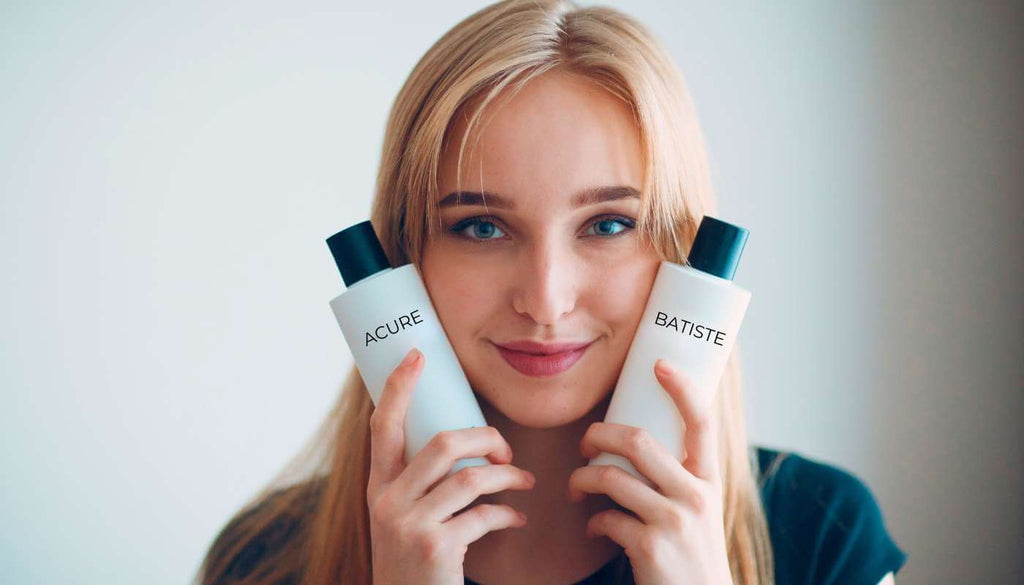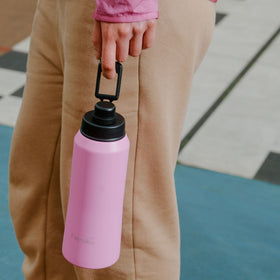
Dry Shampoo Smackdown: Natural vs Mainstream
Pssst! Pssst! Can in hand, I was down the back of the boat, quietly performing my morning ablutions when my brother and dad came racing down the deck, panic on their faces. "Can you hear that?", they shouted. "The leak, can you hear the leak?" "No idea what you're talking about," I replied, and applied the spray can to my hair again as they turned their backs. They nearly jumped out of their skin, until I showed them the can of dry shampoo.
They'd been fixing up the boat for months, and on the maiden voyage up through the Whitsundays to Far North Queensland, let me tell you that showering wasn't a regular thing for them. Clearly the thought that anyone might be concerned about their hair hadn't occurred to them. They thought that the boat (which was a real fixer-upper, let me tell you) had sprung a leak somewhere in the pipes! I took the dry shampoo because I knew I wouldn't have access to enough fresh water to wash my hair.
Back then, I was washing my hair every day, so leaving it for a few days wasn't an option for me. So, I thought I'd try a dry shampoo to get me through. It worked. Spray it on, brush it through, and my hair was reasonably presentable (bearing in mind that I was on a boat. Not sure I'd have gone anywhere fancy with it!).
Dry shampoo is great. It soaks up oil, it makes your blowdry last longer, it means that you can go longer between shampoos (better for your scalp and less drying for your hair), and it gives you more volume. The only problem with dry shampoo is the ingredients.
Years later I thought I'd buy some for another trip, but when I read the back of the can - eeek! Fortunately, it's now relatively easy to get natural dry shampoo. Read on for a comparison of a recent addition to the Hello Charlie range, the Acure Dry Shampoo, which I've been testing for the last couple of months, with the popular mainstream Batiste Dry Shampoo.

Acure Dry Shampoo
Ingredients: Organic corn starch (non-GMO), french white clay (kaolin), oat flour, slippery elm bark flour, argania spinosa (argan) stem cells, ubiquinone (Coq10), lavender essential oil, chamomile essential oil.
This isn't in the EWG Skindeep Database, but there are no problematic ingredients here. The Acure dry shampoo works well, and although I don't like the packaging, I found that if you unscrew the lid and take out the little tube inside, it's pretty easy to apply to your hair and then brush through.
Batiste Dry Shampoo - Strength and Shine
Ingredients: Butane, Isobutane, Propane, Oryza Sativa (Rice) Starch, Alcohol denat., Arginine, Parfum, Distearyldimonium Chloride, Cetrimoniumchloride, Linalool, Limonene.
Batiste gets a 6 in EWG Skindeep Database. Straight up, there's butane, isobutane and propane. They're propellants (these are what replaced chlorofluorocarbons), which is what pushes the stuff out of the can. The EWG classes the first two as high hazard. However, the Cosmetic Ingredients Review Expert Panel tested butanes and said that they were safe because you don't breathe enough of it in, and it evaporates on the skin within 10 seconds. But according to the EWG, Butane, Isobutane, Propane, Perfume, and Distearyldimonium Chloride are all strongly suspected to be skin, eye and lung irritants. Add alcohol to that mix, which enhances skin absorption, although the panel says that butane evaporates on the skin within 10 seconds - is that good enough? Also think about where you're applying it. Generally in the bathroom, which is a small room, so it's not going to disperse as easily or quickly as if you were outdoors. So you'll end up breathing it in, at least a little.
There's also questions about whether mixtures of chemicals that are thought to be safe, are actually safe when they're combined, even in low doses. So while you're not applying it it to your skin for long, you are going to breathe it in, and if you don't have to, and there's an alternative that works, why not go with the safer alternative?









